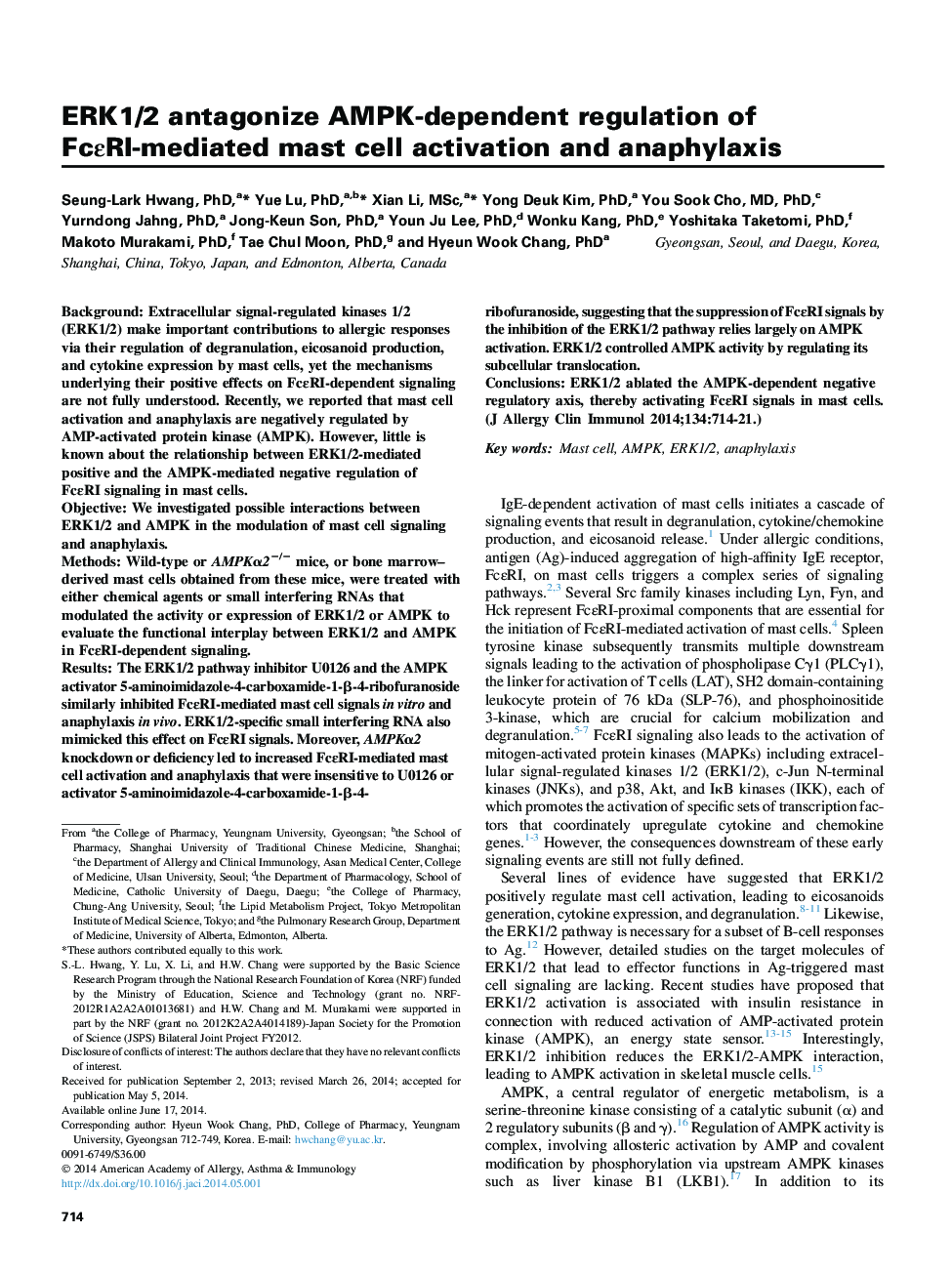| کد مقاله | کد نشریه | سال انتشار | مقاله انگلیسی | نسخه تمام متن |
|---|---|---|---|---|
| 6064653 | 1201863 | 2014 | 15 صفحه PDF | دانلود رایگان |

BackgroundExtracellular signal-regulated kinases 1/2 (ERK1/2) make important contributions to allergic responses via their regulation of degranulation, eicosanoid production, and cytokine expression by mast cells, yet the mechanisms underlying their positive effects on FcεRI-dependent signaling are not fully understood. Recently, we reported that mast cell activation and anaphylaxis are negatively regulated by AMP-activated protein kinase (AMPK). However, little is known about the relationship between ERK1/2-mediated positive and the AMPK-mediated negative regulation of FcεRI signaling in mast cells.ObjectiveWe investigated possible interactions between ERK1/2 and AMPK in the modulation of mast cell signaling and anaphylaxis.MethodsWild-type or AMPKα2â/â mice, or bone marrow-derived mast cells obtained from these mice, were treated with either chemical agents or small interfering RNAs that modulated the activity or expression of ERK1/2 or AMPK to evaluate the functional interplay between ERK1/2 and AMPK in FcεRI-dependent signaling.ResultsThe ERK1/2 pathway inhibitor U0126 and the AMPK activator 5-aminoimidazole-4-carboxamide-1-β-4-ribofuranoside similarly inhibited FcεRI-mediated mast cell signals in vitro and anaphylaxis in vivo. ERK1/2-specific small interfering RNA also mimicked this effect on FcεRI signals. Moreover, AMPKα2 knockdown or deficiency led to increased FcεRI-mediated mast cell activation and anaphylaxis that were insensitive to U0126 or activator 5-aminoimidazole-4-carboxamide-1-β-4-ribofuranoside, suggesting that the suppression of FcεRI signals by the inhibition of the ERK1/2 pathway relies largely on AMPK activation. ERK1/2 controlled AMPK activity by regulating its subcellular translocation.ConclusionsERK1/2 ablated the AMPK-dependent negative regulatory axis, thereby activating FcεRI signals in mast cells.
Journal: Journal of Allergy and Clinical Immunology - Volume 134, Issue 3, September 2014, Pages 714-721.e7